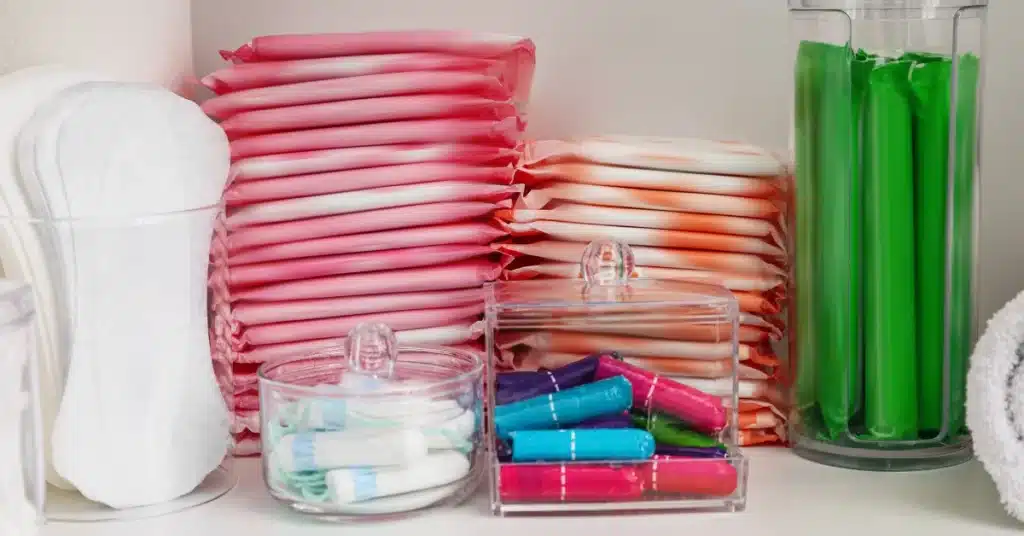Can Soap Cause UTI? Unraveling the Link and Tips for Personal Hygiene
UTIs are typically caused by bacterial entry into the urinary tract.
It can cause discomfort and can be annoying for many individuals.
There is a widespread belief that using certain types of soap, particularly harsh or scented varieties, can lead to the development of UTIs.
In this article, we will answer this interesting question: Can soap cause UTI and explore their connection to each other.
We will also talk about how to maintain hygiene and share some simple ways to avoid UTIs and reduce the chance of getting them.
The soap and UTI
Soap can disrupt the natural balance of bacteria in the genital and urinary areas and cause irritation.
When soap irritates the genital area, it can make the skin more sensitive, which might make it easier for bacteria to enter and cause an infection.
However, it is essential to clarify that soap itself is not a direct cause of UTIs.
UTIs are primarily caused by E. coli bacteria, and soap alone does not contain the types of bacteria known to cause these infections.
Soap is designed to clean the skin and remove dirt and other contaminants, rather than introducing harmful bacteria.
Soap and personal hygiene
While soap itself does not cause UTIs, it is still essential to consider its role in personal hygiene.
Proper hygiene is crucial for preventing infections, including UTIs.
Here are some practical tips to manage soap use with proper hygiene and minimize the potential risk of getting UTIs:
Gentle cleaning

Gently clean the outer part of your genital area using mild or unscented soap and water.
Harsh or heavily scented soaps can irritate the skin and may increase the risk of getting UTIs.
Don’t use bubble bath, soap, or shampoo on your private parts. This can disrupt the natural balance of microorganisms.
After applying the soap, only use warm water to clean them, especially young girls.
Make sure that no soap residue remains around the genital area.
This helps avoid irritation and reduces the risk of a UTI.
Avoid douche
Douching can disrupt the natural bacterial harmony in the private area.
It can contribute to an overgrowth of harmful bacteria, potentially causing UTIs.
Douching also raises the chances of vaginal irritation and infections.
So, it is better to avoid douching in private parts.
Other ways to prevent UTIs
UTI can cause many discomforting symptoms.
Here are some ways to prevent UTI:
Front-to-back wiping
After using the toilet, always wipe from front to back.
It will prevent the spread of bacteria from the anal area to the urethra.
Empty bladder before and after sexual activity
Always urinate before and after sexual intercourse.
It can help eliminate any bacteria that may have entered the urethra during sex.
Hydration
Drink adequate water daily to help flush out bacteria from your urinary tract.
Staying fully hydrated can help in the natural healing process.
Urinate regularly
Don’t hold in urine for extended periods, as this can allow bacteria to multiply.
Go to the bathroom when you feel the need to pee.
Cranberry products

Cranberry juice or supplements may help reduce the risk of UTIs in some individuals.
Its pills and tablets can be taken to prevent UTIs of the urethra and bladder.
These products can make it harder for bacteria to stick to your urinary tract.
Probiotics
Probiotic pills can help keep your urinary tract healthy and are used to treat certain urinary diseases.
You can take them when you’re also taking antibiotics or to stop UTIs from happening.
However, their effectiveness varies from person to person.
Conclusion
Soap is not a direct cause of UTIs.
However, how we use them can cause the infection.
Soap use in private parts can disrupt the natural balance of bacteria and cause irritation.
Using harsh, scented soaps and douches can lead to overgrowth of harmful bacteria.
In order to prevent UTI, make sure to follow genital hygiene practices like using mild and unscented soaps and avoiding their use in the vagina directly.
Always do front-to-back wiping after the bathroom, empty your bladder before and after any sexual activity, and stay hydrated.
These are a few practices that can help avoid the risk of getting UTIs.
Frequently Asked Questions
Can soap cause UTI?
The soap itself doesn’t cause UTIs. However, using harsh or scented soaps can irritate and disrupt the genital area, making it more vulnerable to bacteria. It is important to use mild soaps and follow good hygiene practices to reduce the risk of UTIs.
What are the risk factors that increase the chances of getting UTIs?
UTIs are typically caused by bacteria, particularly E. coli, entering the urinary tract. Other factors like weak immune systems, urinary tract issues, and blockages can also increase the risk of UTIs.
How can I prevent UTI from soap?
To prevent UTIs related to soap, use mild, unscented soap for external cleaning, rinse thoroughly with warm water, and avoid using soap inside the vagina. This helps maintain a healthy balance of bacteria and reduces irritation.
Can douching lead to UTI?
Yes, douching can disrupt the natural balance of vaginal bacteria and increase the risk of UTIs. It is best to avoid douching to maintain a healthy vaginal environment and reduce the chance of infection.
WowRx uses only high-quality sources while writing our articles. Please read our content information policy to know more about how we keep our content reliable and trustworthy.






